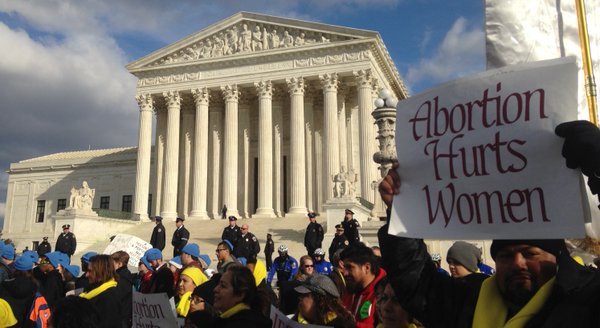The U.S. Supreme Court agreed Monday to hear a Kentucky abortion case to decide if the state attorney general can take up the defense of a pro-life law after the governor’s office refused to do so.
The case involves Kentucky Attorney General Daniel Cameron, a pro-life Republican, Gov. Andy Beshear, a pro-abortion Democrat, and a state law that bans brutal dismemberment abortions on unborn babies.
Beshear’s administration dropped the case last year, but Cameron petitioned the U.S. Supreme Court to be allowed to defend the pro-life law instead.
Reuters reports the justices agreed Monday to consider whether Cameron can intervene in the case. However, they will not consider the dismemberment abortion ban itself – at least not yet.
In a statement, Cameron’s office expressed hope that he will be allowed to defend protections for unborn babies.
“The U.S. Supreme Court will hear our appeal of the case involving Kentucky’s live dismemberment abortion law. SCOTUS will decide whether my office can defend this important law, which prohibits live dismemberment abortions of unborn children,” the statement read.
REACH PRO-LIFE PEOPLE WORLDWIDE! Advertise with LifeNews to reach hundreds of thousands of pro-life readers every week. Contact us today.
A leading pro-life group applauded the news.
“It is encouraging news that the Supreme Court will hear this case,” said SBA List President Marjorie Dannenfelser. “We commend Attorney General Daniel Cameron for doing everything in his power to defend Kentucky’s pro-life laws, including its ban on barbaric live-dismemberment abortions, which was enacted with overwhelming bipartisan support. State legislators acting on the will of the people have both the duty and the right to protect their most vulnerable citizens – born and unborn. We look forward to seeing this right upheld.”
The case is Cameron v. EMW Women’s Surgical Center.
The 2018 law prohibits abortions “that will result in the bodily dismemberment, crushing or human vivisection of the unborn child” while he or she is still alive. These gruesome methods commonly are used in D&E abortions in the second trimester.
If allowed to be enforced, the law could save hundreds of babies’ lives each year. According to state abortion data, 537 of the 3,312 abortions in Kentucky in 2016 were D&E abortions.
The American Civil Liberties Union and EMW Women’s Surgical Center, an abortion facility in Louisville, challenged the law immediately after it passed.
A federal judge blocked the law, and last year, the Sixth Circuit Court of Appeals affirmed the ruling. When Beshear’s administration decided not to appeal, Cameron filed a motion to intervene in the case.
“We’re exhausting every possible option to ensure that this law continues to be defended and is ultimately enforced,” Cameron said in a statement last year. “The law extends compassion and dignity to the unborn by ensuring they are not subjected to the horror and pain of the dismemberment process while still alive.”
He said he wants to ensure the law continues to receive a full defense.
“We would never allow the dismemberment of any other living being, and we are going to continue fighting, all the way to the Supreme Court if necessary, so that it can’t happen to unborn children,” Cameron said.
Dismemberment abortion is a procedure in which the abortionist first dilates the woman’s cervix and then uses steel instruments to dismember and extract the baby from the uterus. The procedure is usually performed between 11 and 24 weeks LMP, when the baby is somewhere between the size of a lemon and a cantaloupe.
By 11 weeks, unborn babies already have fingers and toes, heartbeats and detectable brain waves. They can respond to touch, yawn, suck their thumbs and even show signs of being right or left handed.
The Dismemberment Abortion Ban is built in part on the precedent set in the U.S. Supreme Court case Gonzales v. Carhart (2007) which upheld the federal Partial-Birth Abortion Ban and scaled back the scope of Roe v. Wade. In the court’s opinion, former Justice Anthony Kennedy, a swing vote on abortion, described what occurs in a D&E abortion: “[F]riction causes the fetus to tear apart. For example, a leg might be ripped off the fetus… No one would dispute that for many, D&E is a procedure itself laden with the power to devalue human life.”








